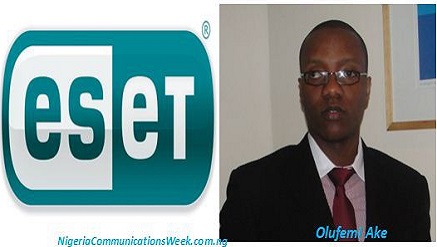E-Business
ESET’s Encryption Outperforms Competitors in Latest AV-Comparatives Survey

In the first business encryption test by AV-Comparatives, ESET’s encryption solution DESlock+ Pro was declared the leading encryption solution on the market for small and medium businesses looking to protect and safeguard their data.
According to the results, DESlock+ Pro outperformed four other mainstream enterprise encryption products.
The report confirms that ESET’s solution enables SMBs and SMEs to have access to a full range of encryption options that set the standard for the industry.
Heralded for its ease of installation, simple management server set up, clean design, and full range of functionality, DESlock+ Pro covers full disk, file/folder and removable media encryptions, with management from a console.
“The need for better encryption services has never been more important for SMEs and we’re proud to offer a leading solution that is used by innovative SMEs, and is now recognized by AV-Comparatives,” said David Tomlinson, Manager of ESET’s DESlock business unit. “At ESET, we’ve developed effective and accessible encryption solutions tailored specifically to SMEs, not only to ensure they comply with data security regulations around the world, but to protect businesses and their most sensitive data.”
Encryption of system drives and removable media has become an increasingly important security consideration for all businesses, regardless of size.
In fact, the European Union recently introduced major regulatory changes to the General Data Protection Regulation (GDPR) valid from May 2018, identifying encryption as part of the regulation itself.
However, according to a report by IDC, which surveyed small and medium-sized businesses, 20% of organizations are not prepared at all for the new EU regulations, while 59% are not fully GDRP-compliant.
“Given the growing importance of IT and data security, this is the first time AV-Comparatives has conducted a test on business encryption,” said Andreas Clementi, CEO at AV-Comparatives. ““We were impressed with the capabilities of ESET’s DESlock Encryption and suggest it is an ideal solution for SMBs and SMEs looking for an effective, user-friendly encryption solution.””
AV- Comparatives Review – Highlights
ESET’s encryption solution DESlock+ Pro provides a full range of encryption options, covering full disk, file/folder and removable media encryption, enabling management from a central console
The product is well suited to small businesses as well as larger enterprises – the flexible technical requirements of the management console mean that it can run equally well on a Windows client OS in a workgroup as it will on a Windows Server computer in an Active Directory domain
The management server can be set up using a single installation wizard, which automatically installs any additional software components required (e.g. SQL Server)
Administrator can easily assign users to encrypted data by means of assigning encryption keys to user groups
Intuitive client software makes it simple for users to encrypt files, folders, and removable devices on their own PCs
Documentation for both the encryption software and the management console is comprehensive, clearly laid out, well-illustrated and easy to navigate
Data security remains at the forefront of the issues that businesses of all sizes will have to increasingly prioritize in the coming years in order to remain competitive and adapt to the rapidly changing landscape.
DESlock’s encryption software helps protect organizations and individuals against data breaches while allowing secure collaboration across complex workgroups and teams. In July 2015, DESlock was acquired by ESET following a two-year technology partnership between the companies.
E-Business
Firm Warns of Blackmail from Alleged “Hackers”, “Law Enforcement” and “Hitmen”

Attackers are incorporating personal details like full names and phone numbers in scam emails to appear credible and induce panic among victims. Scammers may pose as hackers with compromising data, law enforcement agencies issuing fake summons, or even hired assassins demanding ransoms. These threats often leverage techniques to evade email filters and other security solutions, underscoring the need for heightened vigilance.

In the most common variant, scammers impersonate hackers who claim to have infiltrated the victim’s devices. They allege to have access to cameras, microphones, browsing history, and sensitive files, often threatening to release explicit content captured via webcam or screen recordings supposedly taken whilst the victim was watching adult content.
Demands typically involve hundreds of US dollars in cryptocurrency, with promises to delete the data upon payment. These emails may include detailed narratives of the supposed breach, including explanations of malware types and advice on better security – ironically, tips that align with genuine best practices.
Another scam twist involves fraudsters posing as hired hitmen. In this scheme, the sender claims a contract has been placed on the victim’s life but offers to spare them if they outbid the original payer.
The email includes a cryptocurrency wallet for the ransom, framing the scammer as a “merciful” intermediary. This variant relies on fear rather than embarrassment, promising the victim’s life in exchange for payment.
Another prevalent tactic sees scammers masquerading as law enforcement agencies, such as Europol. Victims receive emails with attached PDF or DOC files containing fake summonses accusing them of serious crimes like child exploitation, exhibitionism, or human trafficking.
These documents cite fabricated articles of legal codes, feature forged signatures and seals, and urge immediate contact via a provided email to “resolve” the matter. Upon response, the “authorities” demand paying fines to avoid prosecution, often leading to cryptocurrency transfers.
“To slip past protective solutions, scammers employ various evasion tactics. These include embedding the main threat in attachments to avoid body text scanning, mixing letters from different alphabets (e.g., replacing Latin letters with similar Cyrillic ones), adding diacritical marks via HTML codes, varying fonts in HTML markup, inserting random symbols or punctuation between words, and hiding text in invisible HTML tables.
“Such “noise” makes detection by security solutions more difficult, as each email variant appears unique while remaining readable to humans. For example, cryptocurrency wallet addresses might be obscured with HTML entities to evade filters without hindering the victim’s ability to copy them,” comments Anna Lazaricheva, Senior Spam Analyst at Kaspersky.
E-Business
Nigeria to Unveil Single-Entry Emergency Passport for Citizens Abroad

Nigeria Immigration Service (NIS) is developing a Single-Entry Emergency Travel Passport (STEP) to replace the current Emergency Travel Certificate (ETC).

STEP will aid stranded Nigerians abroad; aligns with broader immigration and border control reforms
Comptroller General Kemi Nanna Nandap announced the initiative this week during a policy meeting organized in partnership with the French government.
Nandap explained that the STEP will serve as a temporary travel document for Nigerian citizens abroad whose passports have expired, been lost, or stolen, enabling them to return home safely.
The new document is part of broader immigration reforms aimed at strengthening identity management and border control in line with global standards.
Since May 2025, Nigerian authorities have been pursuing wide-ranging immigration reforms focused on expatriate management and the visa system.
The measures seek to prevent misuse of expatriate quotas, encourage skills transfer, and streamline immigration procedures through digitization.
The reforms also reinforce the fight against human trafficking and migrant smuggling through tighter border control and better-coordinated migration management.
In October, authorities launched nationwide inspections targeting undocumented foreign nationals, particularly those who had overstayed their visas or violated entry conditions.
Offenders face sanctions such as overstay fines, deportation, and possible future entry bans.
The new STEP will be issued at designated Nigerian embassies and consulates abroad and will be valid for a single entry only.
E-Business
NITDA Highlights Economic Impact, Digital Transformation Gains, as ICEGOV 2025 Concludes in Abuja

The National Information Technology Development Agency (NITDA) has hailed the successful conclusion of the 18th International Conference on Theory and Practice of Electronic Governance (ICEGOV 2025) as a landmark moment for Nigeria’s digital economy aspirations, citing its direct contribution to research excellence, global collaboration and the nation’s ongoing digital transformation agenda.

Hosted in Abuja under the patronage of President Asiwaju Bola Ahmed Tinubu, ICEGOV 2025 convened global experts for four days of rigorous debate, innovative research presentations, and high-impact partnerships, a convergence that NITDA says aligns closely with the President’s redefined priority area of accelerating economic diversification through industrialisation and digitisation.
The conference, a United Nations University (UNU-EGOV) initiative founded in 2007, brought together academia, industry leaders, civil society, development institutions and government actors to shape the future of electronic governance. This year’s edition placed Nigeria at the center of global digital discourse, showcasing the country’s rising intellectual and technological capacity.
A total of 151 scientific papers were submitted by 308 authors from 33 countries, with emerging economies accounting for 68% of participating scholars, a clear sign of the conference’s inclusive reach. Nigeria led global submissions with 102 authors, followed by Brazil, India, Portugal and Greece.
NITDA emphasised that this strong participation reflects the Agency’s decade-long investment in digital talent development, research funding and ecosystem strengthening, which are investments that are already translating into local and international recognition.
The conference also honoured outstanding research through its Best Paper Awards. Notably, Robert Ifeonu of the Central Bank of Nigeria earned the top award in the Research category for his paper “Micro-Transformation Framework for Public Sector Innovation: Catalysing Resilient, Outcome-Driven Digital Governance.” This, NITDA noted, underscores Nigeria’s emerging leadership in developing home-grown digital governance models capable of driving socio-economic impact.
In her closing remarks, Professor Delfina Soares, Director of UNU-EGOV, extended appreciation to NITDA Director-General, Kashifu Inuwa CCIE, for his early endorsement and strategic leadership in bringing ICEGOV to Abuja. She noted that the local partnerships and sponsorships facilitated by NITDA significantly enhanced the conference’s global value and strengthened Africa’s position in digital governance research.
Speaking on the event’s economic and strategic implications, NITDA affirmed that hosting ICEGOV 2025 delivered multiple layers of value, from boosting Nigeria’s reputation as a digital innovation hub to fostering partnerships that will stimulate new investments, research collaborations and capacity-building programmes.
The Agency added that insights and tools shared during the conference will further accelerate the actualisation of its digital transformation agenda, strengthen public sector efficiency and support the Federal Government’s commitment to economic diversification through digitisation and industrialisation. The knowledge exchange from ICEGOV, it said, will catalyse improved service delivery, enhanced regulatory frameworks and the deepening of Nigeria’s knowledge-driven economy.
As delegates departed Abuja carrying new research linkages and strategic commitments, NITDA reaffirmed its readiness to sustain the momentum, ensuring that Nigeria not only participates in global digital governance conversations but also shapes them.

 News1 day ago
News1 day agoPreventive, Silicon Valley Firm May Birth Genetically Engineered Babies

 E-Business1 day ago
E-Business1 day agoNigeria to Unveil Single-Entry Emergency Passport for Citizens Abroad

 E-Financial1 day ago
E-Financial1 day agoFG Seeks Fresh $500m World Bank Loan for MSMEs

 General News1 day ago
General News1 day agoCOVID-19 Vaccines may Help some Cancer Patients Fight Tumors

 Telecom1 day ago
Telecom1 day agoGlo Announces N1m Monthly Giveaway in New Trivia Game

 E-Business1 day ago
E-Business1 day agoNITDA Highlights Economic Impact, Digital Transformation Gains, as ICEGOV 2025 Concludes in Abuja

 E-Financial1 day ago
E-Financial1 day agoNDIC Now Better Positioned to Prosecute Parties at Fault for Bank Failure

 E-Financial1 day ago
E-Financial1 day agoUBA Reaffirms Commitment to Empowering African Entrepreneurs















